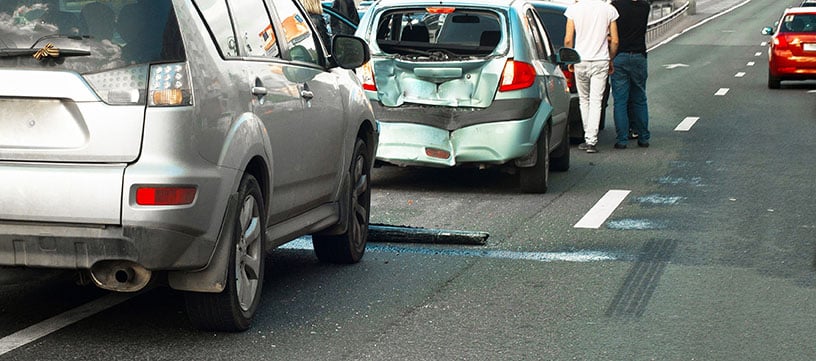2020 was a year like no other in many respects, including the number of lives lost due to vehicle accidents. Though it may seem counterintuitive with fewer people on the roads, here are some of the reason why:

Fatal Accidents Increase by 24% on US Roads
The National Safety Council (NSC) recently released initial findings on road fatalities in 2020, and the news is not good. Vehicle fatalities increased 8% in a single year (2019) and 24% compared to 2007.
This equates to 42,060 deaths in the US caused by vehicle crashes, which is the highest increase in nearly 100 years when the NSC began compiling the data.
What Caused the Increase in Crashes on US Roads?
According to the NSC, the increase in deaths is a direct result of people speeding on less congested roads due to the pandemic and more frequent reckless driving behavior, including driving under the influence of drugs or alcohol and not wearing a seat belt.
Are there Statistics Available for New Hampshire Vehicle Fatality Rates?
As of this blog's publishing date, I could not find any state-specific statistics, but interesting enough, New Hampshire was an example of driving down traffic deaths in 2019 with a 30% decrease from 2018.
According to the Office of Highway Safety, there were still 99 traffic-related fatalities and 88 fatal crashes in 2019. Also, according to NH Transportation Management Center, there have been nine fatalities since January 2021 in NH.
Because one fatality is one death too many, the Transportation Management Center strives to eliminate all fatalities on NH roadways with the New Hampshire Driving Towards Zero plan.
What Can Drivers Do to Help Decrease Fatality Rates on the Road?
1. Focus- Everyone knows that cell phones are a massive distraction while driving, but so are many other things like eating, passengers, kids, etc. To create good habits and set a good example for children taking cues from you, put the phone away, eat lunch later, and just drive.2. Be Ready- Though you may be a good driver, not everyone is. As a driver, you need to anticipate the actions of others. Is that car not going to stop at the stop sign? Is the oncoming car going to try to take an abrupt left turn in front of you? Is that child or dog going to run in front of you? We can't control the actions of others, but we can help lessen the impact (of an injury or vehicle damage) if we can anticipate what others may do (which also requires you to follow step 1.)
3. Slow Down - The faster you travel, the longer it takes to stop. There are speed limits for a reason, so when you feel that the speed limit on a particular road is ridiculously slow, remember that traffic data was used when setting the speed limit and based on facts you may not know about. When you speed, you are not just breaking the law you have:
- a greater chance of losing control of the vehicle
- reduced the effectiveness of airbags and other safety equipment
- increased degree of accident severity, meaning more severe injuries or vehicle damage
- decreased fuel efficiency
- risk a fine and car insurance surcharge for 3 to 6 years
4. Wear a seat belt: According to the National Safety Council, seat belts reduce your risk of injury in an accident by 50%. That is a considerable number and worth getting your clothes a little wrinkled over.
How would my NH Car Insurance Respond to a Fatal Car Accident?
Nobody wants to think about being involved in a fatal car accident, but it does happen to even the best drivers. This is why having the right coverage in place is essential.
If you are legally held responsible for causing a fatal car accident, you will most likely be sued. This is why having adequate coverage is critical. Though it is impossible to determine what is enough coverage given all the possible scenarios, a good guide is to consider your assets (current and future) and then look at your auto policy. Are the liability limits lower than all your assets and potential earnings? If so, you should increase these limits and perhaps consider a NH umbrella policy.
Talk to an insurance professional, and they can provide you quotes to increase coverage on your NH auto policy or on an umbrella policy.
Even if you are not found legally at fault in an auto accident, your NH car insurance policy can protect you with uninsured/underinsured motorist coverage. In NH, your uninsured and underinsured auto coverage must be equal to the bodily injury liability coverage you purchase. Essentially, this means that you are protecting others as much as you are protecting yourself against injury in a car accident.
As New Hampshire is a state where car insurance is not mandatory, it is not uncommon of to be involved in an accident with someone who has no insurance. What would this mean for you if seriously injured (or worse) in a car accident? It means that you may be able to collect for your injuries and/or pain-and-suffering under your policy if the legally responsible driver did not carry enough coverage to compensate you for your damages or had no coverage at all..
Uninsured and underinsured coverage can be a huge benefit so be sure to speak with your insurance professional to review the coverage on your NH Car Insurance policy.
Stay safe out there and let's make 2021 a safer year on the road!


